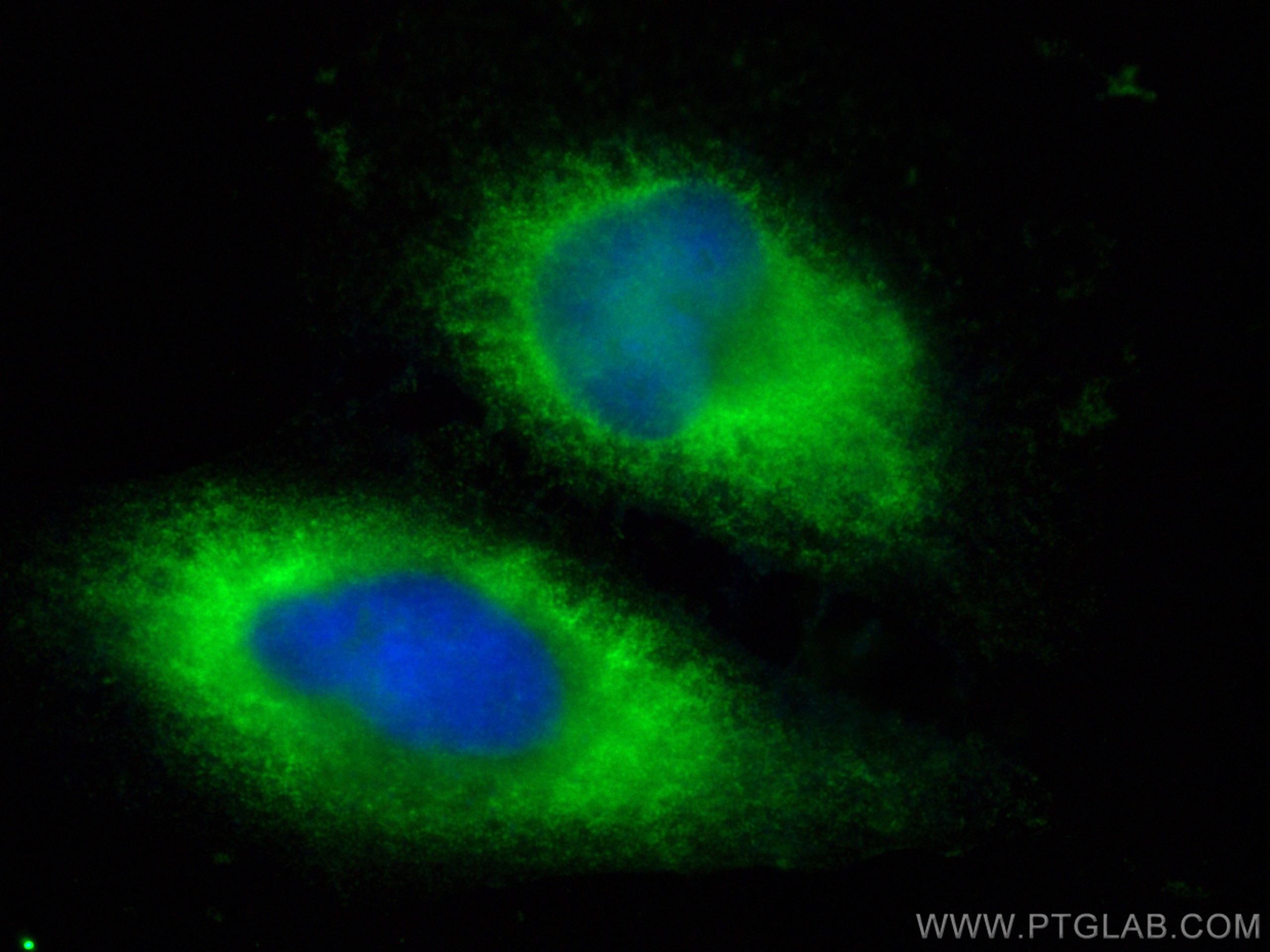Tested Applications
| Positive IF/ICC detected in | HeLa cells |
Recommended dilution
| Application | Dilution |
|---|---|
| Immunofluorescence (IF)/ICC | IF/ICC : 1:50-1:500 |
| It is recommended that this reagent should be titrated in each testing system to obtain optimal results. | |
| Sample-dependent, Check data in validation data gallery. | |
Product Information
CL488-67727 targets ATG4B in IF/ICC applications and shows reactivity with human, mouse, rat samples.
| Tested Reactivity | human, mouse, rat |
| Host / Isotype | Mouse / IgG2a |
| Class | Monoclonal |
| Type | Antibody |
| Immunogen | ATG4B fusion protein Ag30510 Predict reactive species |
| Full Name | ATG4 autophagy related 4 homolog B (S. cerevisiae) |
| Calculated Molecular Weight | 44 kDa |
| Observed Molecular Weight | 44 kDa |
| GenBank Accession Number | BC000719 |
| Gene Symbol | ATG4B |
| Gene ID (NCBI) | 23192 |
| RRID | AB_3672961 |
| Conjugate | CoraLite® Plus 488 Fluorescent Dye |
| Excitation/Emission Maxima Wavelengths | 493 nm / 522 nm |
| Form | Liquid |
| Purification Method | Protein A purification |
| UNIPROT ID | Q9Y4P1 |
| Storage Buffer | PBS with 50% Glycerol, 0.05% Proclin300, 0.5% BSA, pH 7.3. |
| Storage Conditions | Store at -20°C. Avoid exposure to light. Stable for one year after shipment. Aliquoting is unnecessary for -20oC storage. |
Background Information
ATG4B(autophagy 4) is also named as APG4B, AUTL1, KIAA0943 and belongs to the peptidase C54 family. It is a homolog of yeast Apg4, a cysteine protease involved in autophagy and is a cytoplasmic enzyme. This protein is highly expressed in skeletal muscle, with lower expression in heart, liver, and pancreas and no expression is detected in fetal tissues by the northern blot. ATG4B is widely expressed in tumor cell lines (PMID:12446702). It has some isoforms produced by alternative splicing with molecular mass of 31-52 kDa.
Protocols
| Product Specific Protocols | |
|---|---|
| IF protocol for CL Plus 488 ATG4B antibody CL488-67727 | Download protocol |
| Standard Protocols | |
|---|---|
| Click here to view our Standard Protocols |



